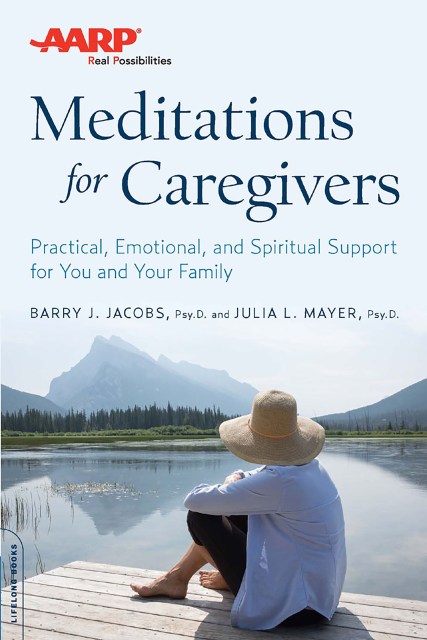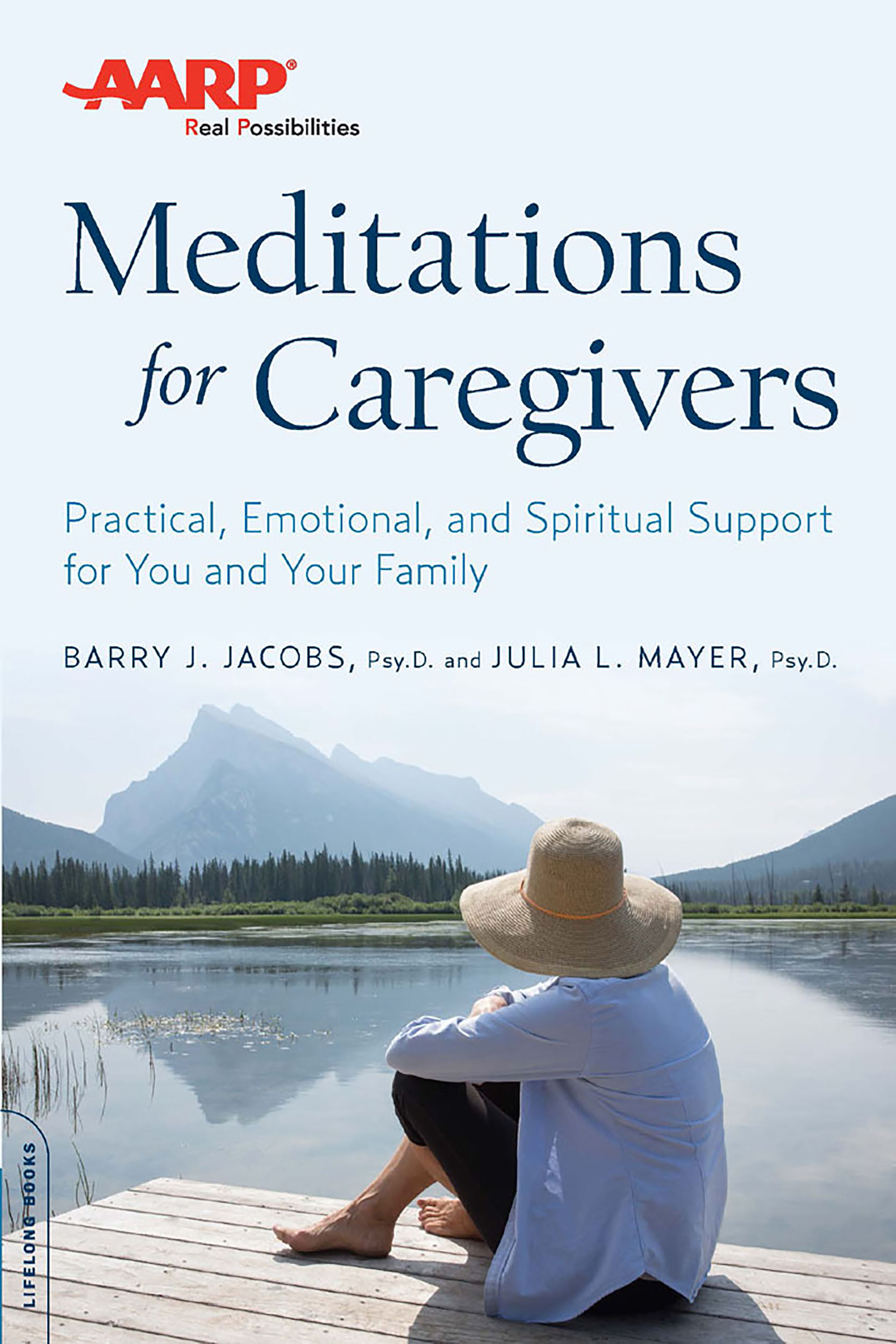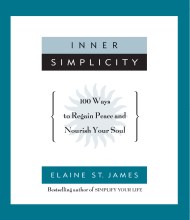Promotion
Use code CYBER2024 for 30% off sitewide + free shipping over $30
By clicking “Accept,” you agree to the use of cookies and similar technologies on your device as set forth in our Cookie Policy and our Privacy Policy. Please note that certain cookies are essential for this website to function properly and do not require user consent to be deployed.
AARP Meditations for Caregivers
Practical, Emotional, and Spiritual Support for You and Your Family
Contributors
Formats and Prices
Price
$9.99Price
$11.99 CADFormat
Format:
- ebook $9.99 $11.99 CAD
- Trade Paperback $18.99 $24.99 CAD
This item is a preorder. Your payment method will be charged immediately, and the product is expected to ship on or around July 12, 2016. This date is subject to change due to shipping delays beyond our control.
Also available from:
Family care giving has its challenges: emotional overload, time constraints, anxiety, burnout, missed work, adult sibling conflicts, and marital issues. AARP Meditations for Caregivers blends emotional and spiritual motivation to minimize the strains while helping caregivers view their work as a mission from the heart. Chapters are organized by theme, including topics such as accepting your feelings, knowing your limits, seeking support, and managing stress. Each reading offers a poignant meditation, an anecdote drawn from the author’s personal or clinical experience, and hands-on or psychological advice to foster coping skills and a sense of fulfillment.
The meditations in this dispensable book will provide you with solutions to typical care giving challenges, offer relief and renewal through mindfulness, and inspire you to find meaning and value in the work you do.
-
"This invaluable, wise, and compassionate guide is frank, inspirational, and altogether timelessly human."—John Rolland, MD, Northwestern University Feinberg School of Medicine
"AARP Meditations for Caregivers will help caregivers find their own way to a place of calm and purposefulness."—Carol Levine, director, Families and Health Care Project, United Hospital Fund
"AARP Meditations for Caregivers is filled with stories of hope, perseverance—even transcendence. Drawing from their personal experience as well as others, Drs. Jacobs and Mayer remind us that providing care for a loved one can be a sacred, moral, and enriching endeavor."—Katy Butler, author of Knocking on Heaven's Door
"This collection of lessons and insights assures us that our caregiving experiences are not unique. Stressed caregivers will be able to draw solace from these anecdotes."—Robert L. Kane, MD, School of Public Health, University of Minnesota, and author of The Good Caregiver -
"This book is truly a bible for caregivers. Barry Jacobs and Julia Mayer tell more than 100 stories of dilemmas faced by children, siblings, husbands, and wives thrust into a role of caregiver...Reading these all-too-human tales, caregivers won't feel quite as alone—and they'll see that even when they're angry, frustrated, sad, stressed out, they can find ways to express love, empathy, and humor."—Marc Silver, author of Breast Cancer Husband
"AARP Meditations for Caregivers captures the frustrations and determination, sorrows, and joys typically experienced by family caregivers. Drs. Jacobs and Mayer offer concrete suggestions and inspiration for those who provide countless acts of loving care."—Janis Abrahms Spring, PhD, author of Life with Pop: Lessons on Caring for an Aging Parent -
"Like many of the AARP resources, this one is high on practical advice."Outreach NC
- On Sale
- Jul 12, 2016
- Page Count
- 240 pages
- Publisher
- Da Capo Lifelong Books
- ISBN-13
- 9780738219035
Newsletter Signup
By clicking ‘Sign Up,’ I acknowledge that I have read and agree to Hachette Book Group’s Privacy Policy and Terms of Use







